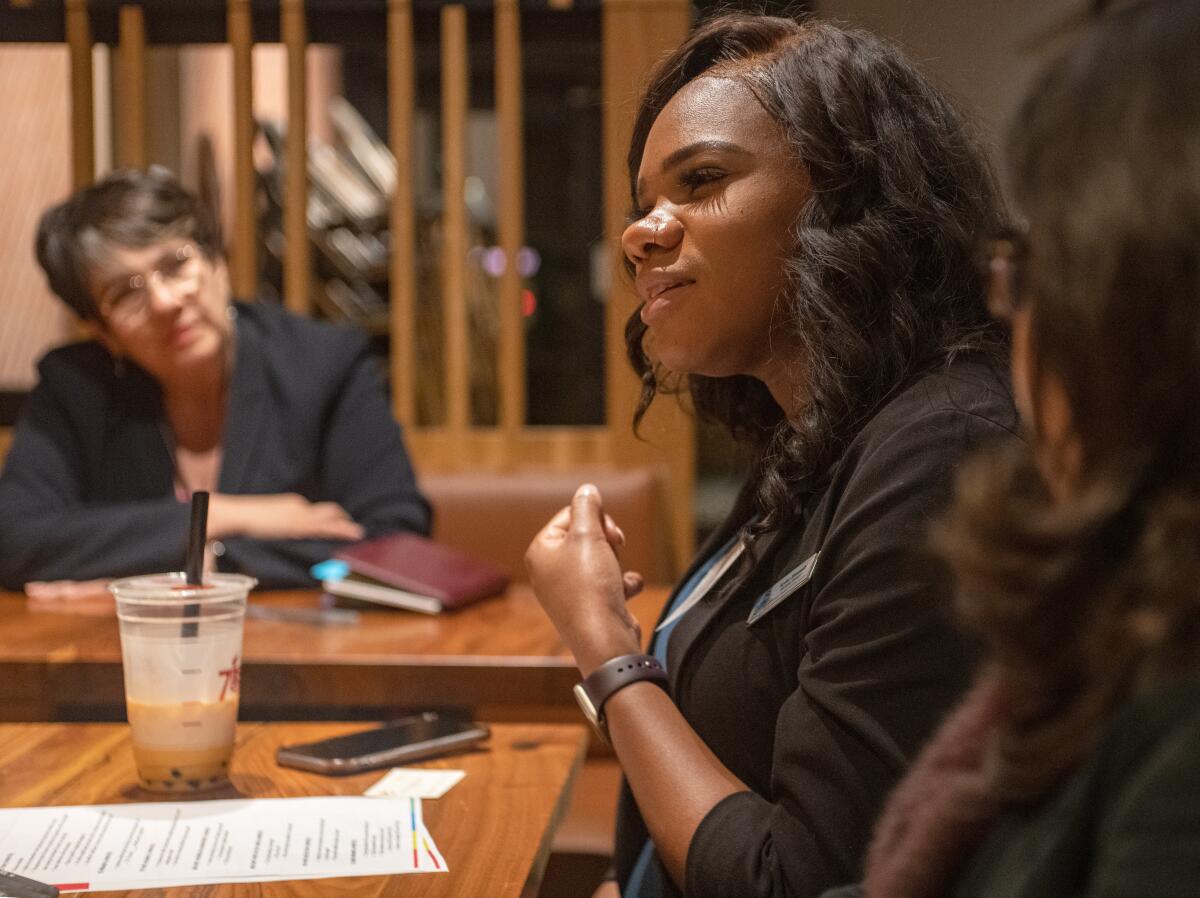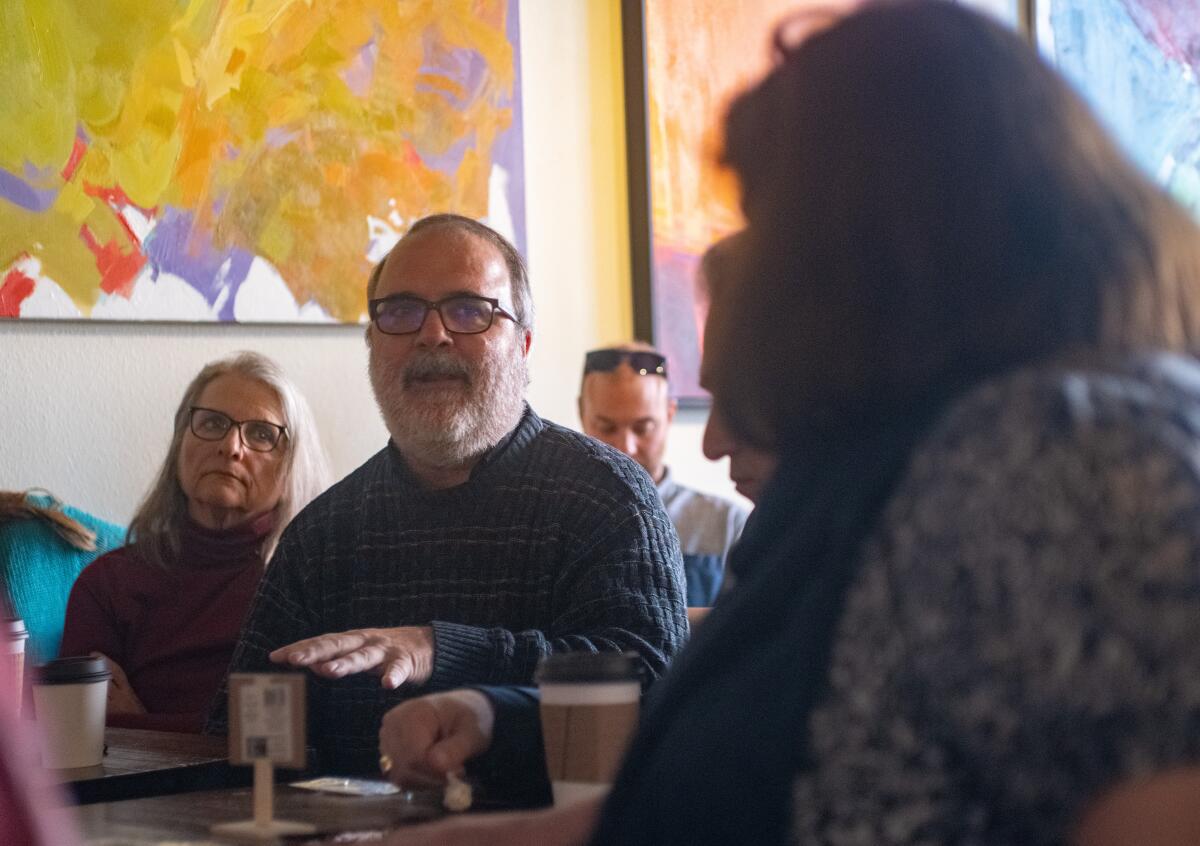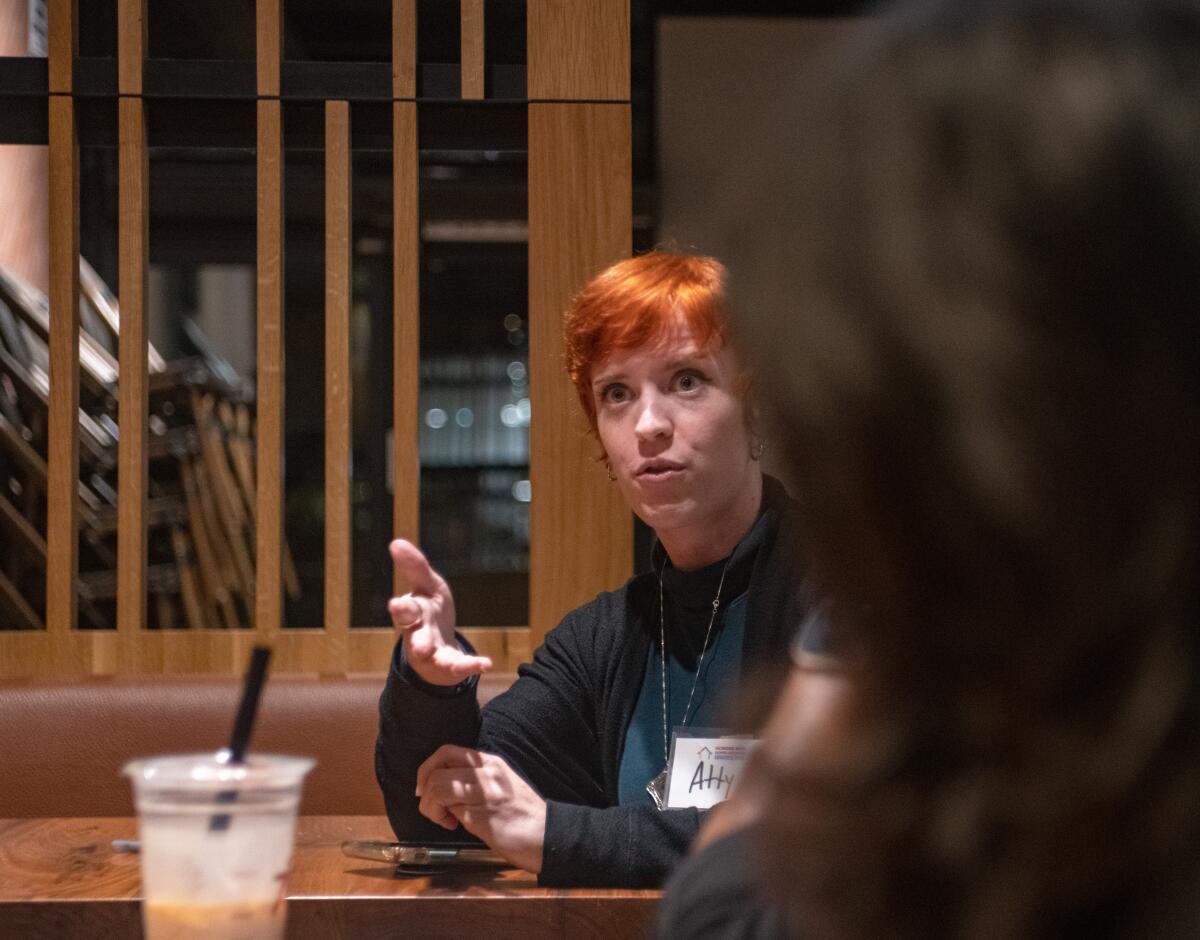Advocates ask ‘is housing a human right?’ in Orange County events for Hunger and Homelessness Awareness Week

Advocates reflecting during Hunger and Homelessness Awareness Week held a series of discussions in Costa Mesa, Fountain Valley, Fullerton and Mission Viejo last week, inviting participants to ask whether they believe having a home is a human right.
As many as 5,718 homeless people live in Orange County, including 3,057 without access to any form of shelter, according to the most recent Point in Time count released in May. The report is typically an annual snapshot of the extent of the housing crisis in the region but was put on hold for the past two years due to the coronavirus pandemic.
The most recent figure represents a 17% decrease from the last time the count was conducted — 1,142 fewer people than the 6,860 living either on the street or in shelters in 2019. That’s still too many, lawmakers and representatives of faith-based organizations and nonprofit groups said in last week’s discussions.
“While the data ... demonstrate an overall decrease in homelessness, [the count] also highlighted the disproportionate amount of [Black people, Indigenous people and people of color] who were experiencing homelessness,” Maricela Rios-Faust told attendees of the second annual State of Homelessness Address hosted Nov. 14 at the First United Methodist Church of Costa Mesa. Rios-Faust is the board chair of the Orange County Continuum of Care, an agency that coordinates services for the homeless across 34 cities.
Recent accounts also show that a growing portion of those experiencing homelessness are seniors, said Becks Heyhoe, executive director of United to End Homelessness, a group that works in association with the Orange County United Way. She added that many older people in shelters or out on the street weren’t chronically homeless before. The situation is new to many of them, and seniors often have an especially difficult time accessing and navigating support services that might be available.
Reports of a decline in the number of those without reliable housing might have been an encouraging sign. But that news came as coroner’s officials reported some of the highest mortality rates ever seen among homeless people in Orange County.
On average, about 40 people experiencing homelessness have died each month since the height of the pandemic, state Assemblywoman Sharon Quirk-Silva pointed out in a recorded statement played for attendees of the event at First United Methodist.
Quirk-Silva, County Supervisor Doug Chaffee and speakers at the event said the desperately needed construction of supportive housing must come alongside a wide range of services aimed at addressing the underlying causes that drive people into homelessness.
In 2018, Orange County officials pledged to build 2,700 units alongside facilities for mental health and addiction treatment by June 2025. As of Monday, 403 had been completed, 559 were under construction or on the verge of breaking ground, and 311 planned units were actively collecting funding.
In the meantime, groups like United to End Homelessness are connecting people who qualify for programs to help cover the cost of housing and landlords willing to rent.
“We still have more work to do,” Chaffee said in a recorded statement.
The discussion in Costa Mesa kicked off a series of webinars and coffee shop talks hosted by United to End Homelessness in collaboration with more than two dozen other organizations. They were centered on a question that served as the theme for this year’s Homelessness Awareness Week: Is housing a human right?
The chats took place Thursday at Artisan by 7 Leaves in Fountain Valley, Friday at Pilgrim’s Coffee House in Fullerton and Saturday at Ziggi’s Coffee in Mission Viejo.

Many attendees, like father Dennis Kriz of the St. Phillip Benizi Catholic community in Fullerton, were conscious of common concerns raised by those resistant to transitional units and shelters going up near their homes.
“In our neighborhoods, you couldn’t go to the parks,” Kriz told the group in Fullerton on Friday. “There was a playground that was almost never used by families because there would be one or two homeless people sleeping there.”
Kriz and others who participated in the discussion noted that supportive housing gives people experiencing homelessness somewhere other than public spaces to sleep.
“Sometimes people ask, why should they get to sleep there for free when I have to pay for my housing?” Fullerton City Councilman Ahmad Zahra said to the group gathered Friday.
Attendees who favored public funding to tackle homelessness held that getting people off the street is in the broader public’s interest. Some pointed out that putting more people in housing could help alleviate the strain on hospitals and paramedics treating people with conditions that might have been avoidable if they had shelter.

The people who attended the talks last week were by and large in favor of efforts to end homelessness, said People for Housing cofounder and director Elizabeth Hansburg, one of the Fullerton event’s facilitators. She acknowledged that for others who have never been homeless or close to someone who has, it can be difficult to empathize with those going through it.
However, there are many who might discreetly be one personal emergency away from losing their homes, Hansburg said. And the portion of the homeless population living in encampments or crashing in public spaces represents only the “tip of the iceberg,” not the full extent of the housing crisis.
“My husband is a teacher,” Hansburg said. “There are kids at his school who are living at a temporary shelter or they’re living with grandparents and aunts and uncles in an overcrowded housing situation. The school goes to great lengths to not make that child stick out, right? It’s closer than we think.”

All the latest on Orange County from Orange County.
Get our free TimesOC newsletter.
You may occasionally receive promotional content from the Daily Pilot.




